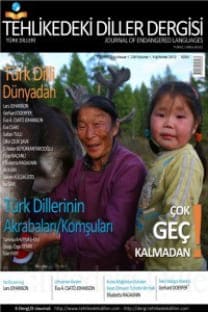Соборная мечеть Санкт-Петербурга в фотографиях и открытках
Tatarlar, şehrin inşasından bu yana St. Petersburg’da yaşamalarına rağmen ancak yirminci yüzyılın başında bir cami inşa etme olanağına kavuştular. Cuma Mescidi, bir yüzyıldan fazla bir süredir, çoğunluğu Tatar olan St. Petersburg’un Müslüman sakinleri için önemli bir din, toplanma, kültür ve iletişim merkezi. 1913’teki resmî açılışı ve 1920’deki son inşaatından sonra cami, din işlevleri yerine getirdi. Ancak din işlevlerin yanı sıra bu şehirdeki Tatarların dilini ve kültürünü daha da destekledi. Özellikle iki başlıca İslami bayram olan Kurban Bayramı ve Ramazan Bayramı sırasında, St. Petersburg’dan gelen Tatarlar camide toplandı. 1940–1956 yılları arasında ise Sovyetler Birliği’nde uygulanan din baskısı nedeniyle faaliyetlerinde bir kesinti oldu. Bu dönemde Tatarlar kutlamalar için banliyödeki Volkova köyünde bulunan eski Tatar mezarlığında toplandı. Yirminci yüzyılın ikinci yarısında cami yeniden açıldığında, aynı zamanda Leningrad’ı ziyaret eden turistlerin de uğrak yeri oldu. Bu makalede, St. Petersburg’daki Tatar cemaatinin tarihi ile yakın bir şekilde ilgili olan Cuma Mescidi’nin tarihi, tarihinin farklı dönemlerine paralel olarak fotoğraf ve kartpostallarda anlatılmaktadır. Resimler çoğunlukla yazarın koleksiyonundandır ve bazıları ilk kez yayınlanmaktadır.
Anahtar Kelimeler:
Saint Petersburg, İslam, cami, görselleştirme, kültürel miras
The Cathedral Mosque in Saint Petersburg in Photos and Postcards
Tatars have lived in Saint Petersburg since the construction of the city, but only at the beginning of the twentieth century they received the possibility to build a mosque. The Cathedral (Jum‘a) Mosque has for more than a century been a significant religious, social, cultural and communication centre for the Muslim inhabitants of Saint Petersburg, of which the majority are Tatars. After its official inauguration in 1913 and final construction in 1920, the mosque fulfilled religious functions, but supported even more the language and culture of these urban Tatars. Especially during the two main Islamic festivals, Qurban bayram and Uraza bayram, the Tatars from Saint Petersburg gathered at the mosque. Between the 1940s and 1956, however, there was a break in the activities because of the oppression of religion in the Soviet Union. During this period, the Tatars gathered for celebrations at the old Tatar cemetery in Volkova village in the suburbs. During the second half of the twentieth century, when the mosque opened again, it also became a destination for tourists visiting Leningrad. In this article, the history of the Cathedral Mosque is told in photos and postcards. The different periods of its history are closely intertwined with the history of the Tatar community, language and culture in Saint Petersburg. The pictures are mostly from the author’s collection and some of them are published for the first time.
Keywords:
Saint Petersburg, Islam, mosque, visualisation, cultural heritage,
___
- Беккин, Р. И., Тагирджанова А. Н. (2016). Мусульманский Петербург. Исторический путеводитель. Жизнь мусульман в городе на Неве и в его окрестностях. Москва; Санкт-Петербург: Институт Африки РАН.
- Беккин, Р. И. (2017). Мусульмане в советском Петрограде–Ленинграде (1917–1991). Москва: ООО «Садра».
- Беккин, Р. И. (2016). «Материалы частных и государственных фотоархивов как источник по истории татаро-мусульманской общины советского Петрограда-Ленинграда. 1917–1991 гг.» Государство, религия, церковь в России и за рубежом 4, p. 118–147.
- Bekkin, R., Ståhlberg S. (2016). “Tatars in Saint Petersburg”. I. Svanberg and D. Westerlund (eds), Muslim Tatar Minorities in the Baltic Sea Region. Leiden: Brill. p. 67–85.
- Bekkin, Renat (2017). “Muslims in the Soviet Petrograd-Leningrad”. Baltic Worlds 10:1 — 2, p. 110–113.
- Başlangıç: 2012
- Yayıncı: Ülkü ÇELİK ŞAVK
Sayıdaki Diğer Makaleler
Estonya Tatar Kimlik İnşasında Dilin ve Dinin Rolü
İçindekiler (TDD JofEL 19 Yaz Summer 2021)
Tatarca Kolay Okunan Kitaplar: Dil Öğrenimi, Okuma Geliştirme ve Tehlikedeki Diller için Destek
Sabira STAHLBERG, Fazile NASRETDİN
Tatar Diline Kazandırılmış “Ciñel Tel” Projesi
Sunuş: Tatar Dili Koruma Stratejileri ve Yenilikçi Uygulamalar
Finlandiya’daki Tatar Dilinin Korunması ve Eğitim Faaliyetleri
Gölten BEDRETDİN, Sabira STAHLBERG
Almanya‘daki Tatarlar ve Tatar Dili
Dil Gelişimi ve Dil Öğrenmeye Yönelik Yaratıcı Bir Yol Olarak Haiku Şiirleri
Sabira STAHLBERG, Fazile NASRETDİN, Orsolya KİSS
